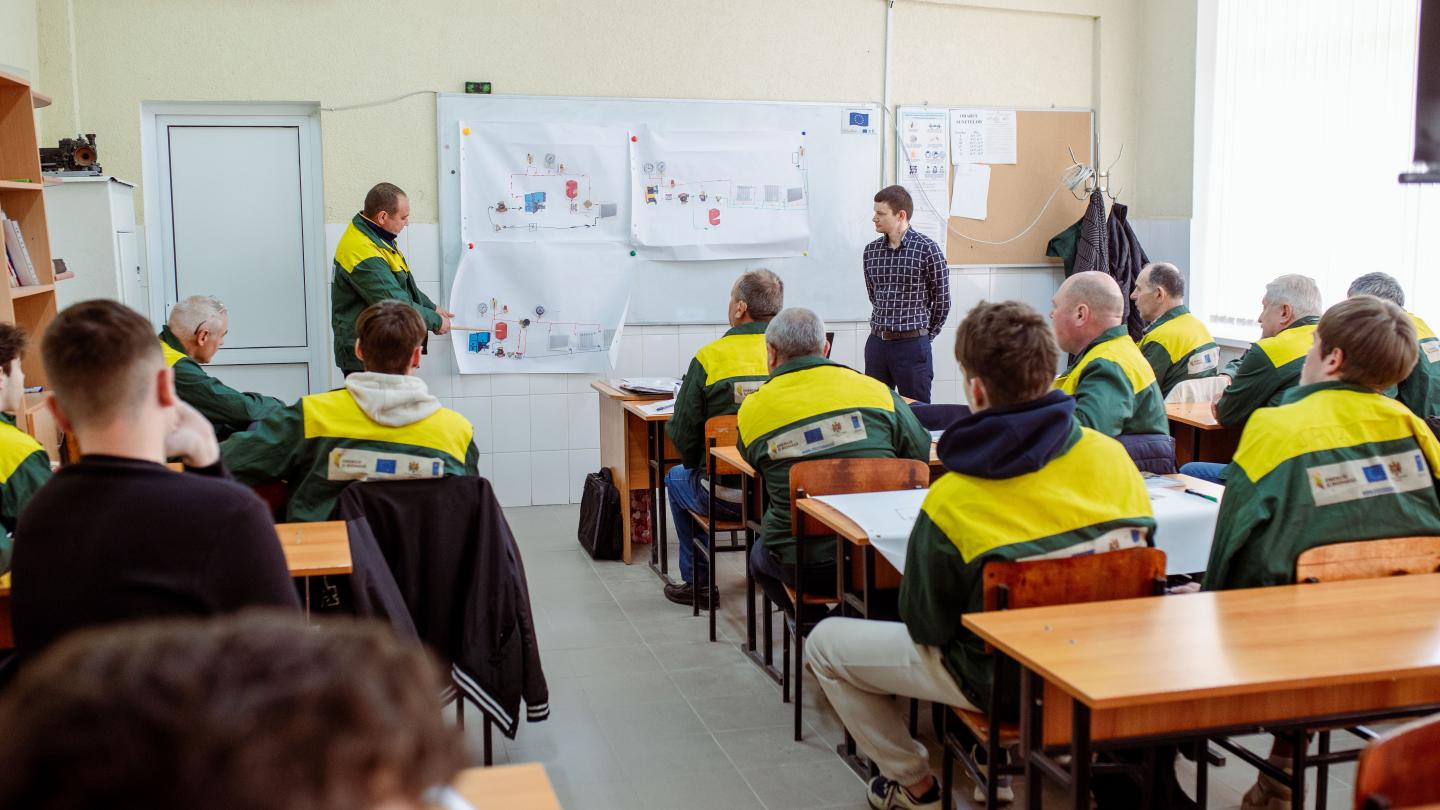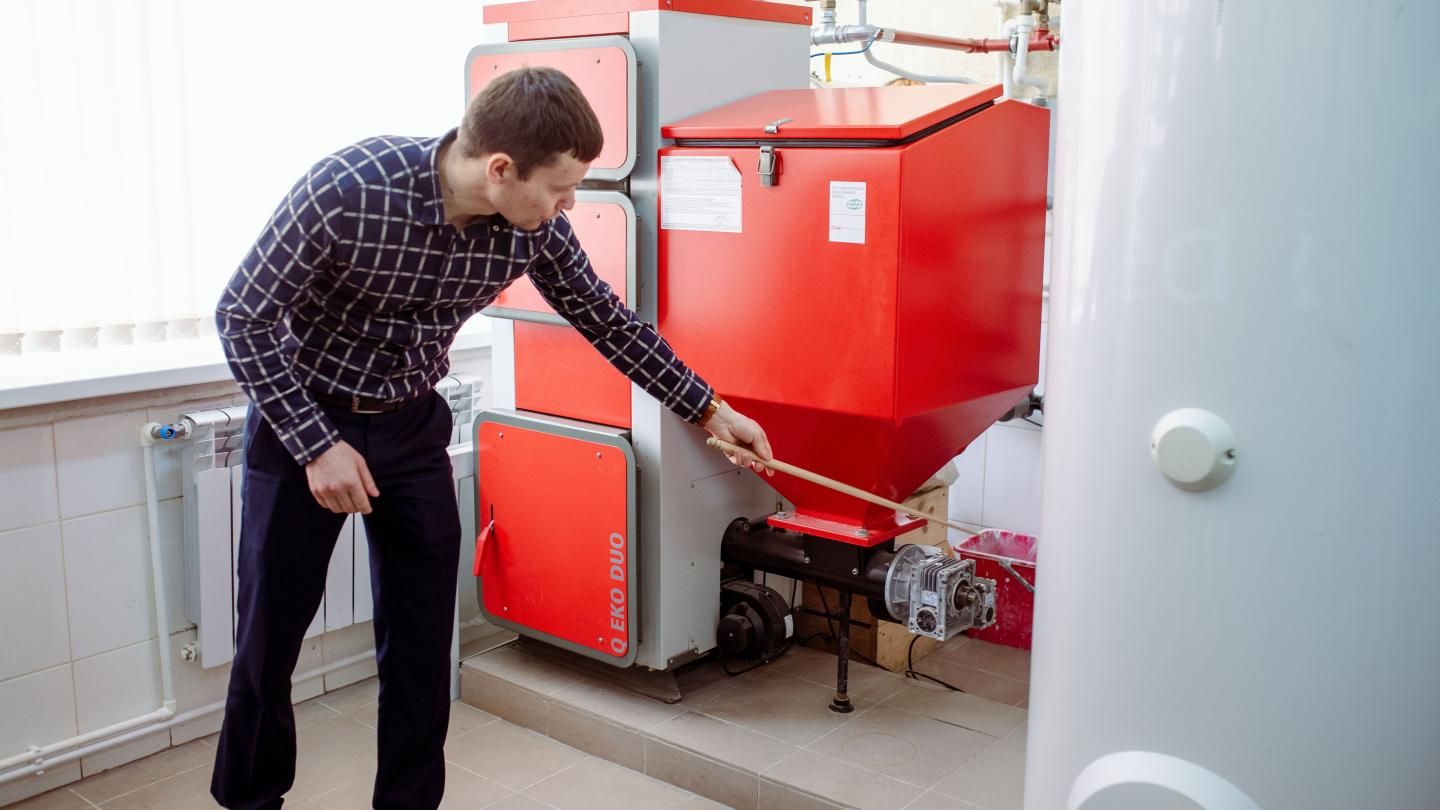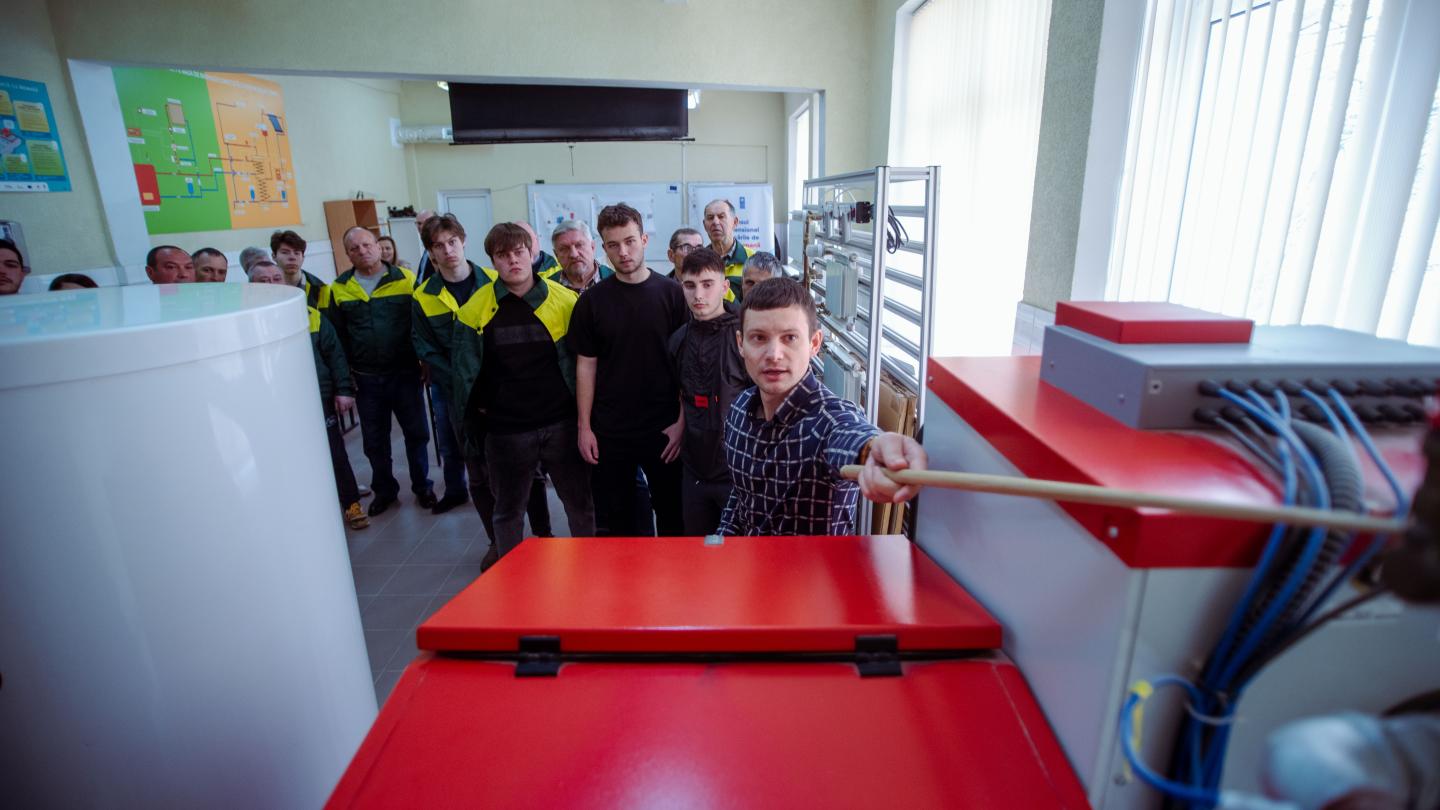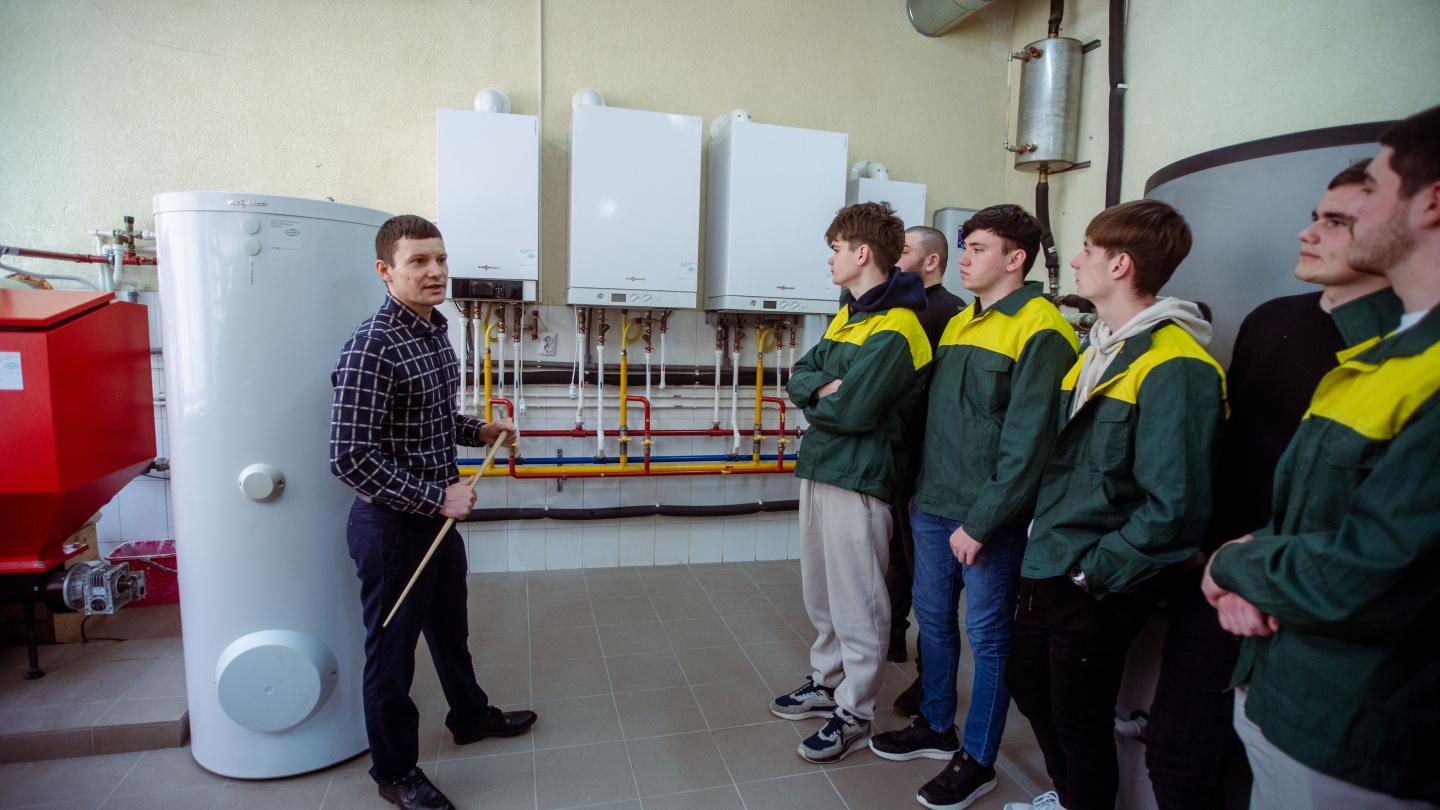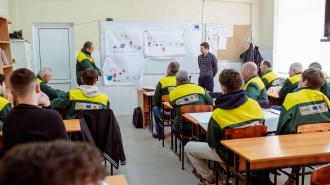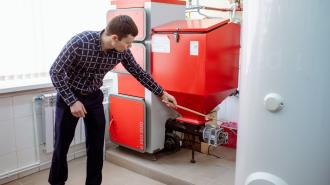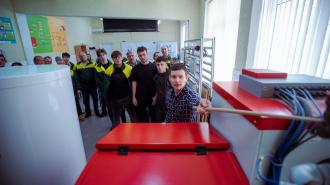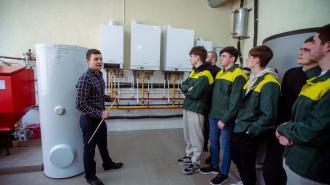150 operators of biomass boilers, trained with the support of Japan and UNDP
April 11, 2024
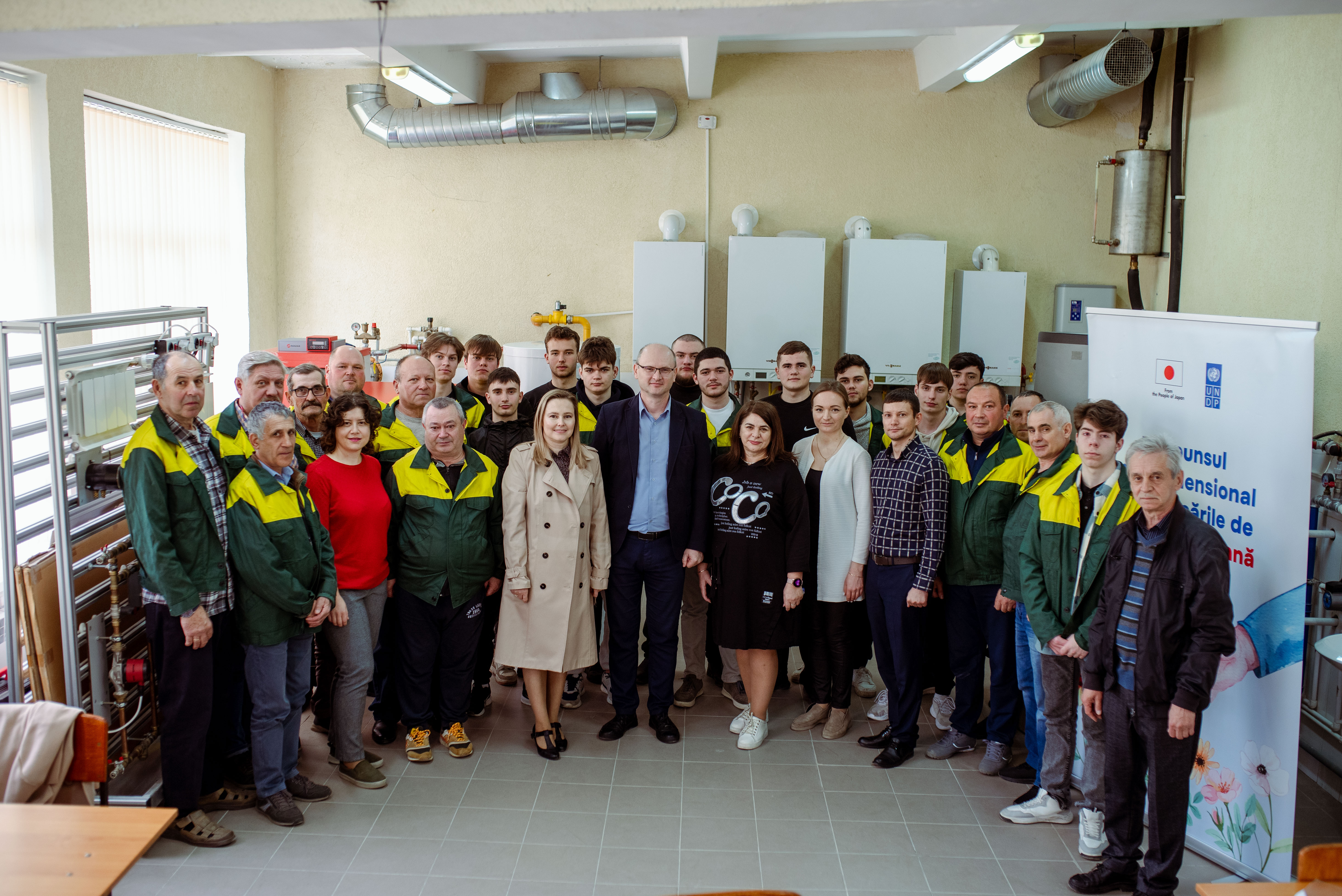
150 operators of biomass boilers from public institutions throughout the country are trained within a UNDP project financially supported by the Government of Japan. The course, with a duration of 40 hours, is certified, confirming the acquired skills. The operators are gradually trained, in groups of about 20 people, until the beginning of autumn.
The training is offered by the Center for Excellence in Construction and is based on a training programme developed in 2017, also with the support of UNDP and accredited by the National Agency for Quality Assurance in Education and Research. Operators study how to prepare the heating installation for the cold season, monitoring and supervision, service work, conservation at the end of the heating season, safety and health rules at work, in the process of operating the boilers.
"Even though I know how to work practically, I was initially trained by the company that installed the equipment, here all my knowledge and skills were deepened and strengthened. It is good to know what other technologies exist and how they work, what the ventilation system entails. We also learned new information about the responsibility of the operator, regarding the legal, but also practical aspects, what we can do and what we don't have the right to do," says Valeriu Gracic, the operator of the boiler installed within the Refugee Placement Center in Cărpineni, Hîncești.
"The need for training is much greater. We set out to prioritize training those who have no formal training in this field at all, but work as operators. The equipment in the laboratory of the center of excellence is identical to that which the operators manage, so we are sure that the theoretical information complements the practical skills, so that the operators know in a practical way how to correctly manage the boilers they are responsible for,” explains Mihail Lupu, consultant, UNDP Moldova.
Also with the support of Japan and the UNDP, 80 families with a high degree of energy vulnerability will benefit from the installation of biomass boilers, and 10 producers of solid biofuels will be supported to streamline their production from the perspective of energy efficient technologies and resources .
More than 320 boilers on solid biofuel operate in public institutions in the country, such as schools, kindergartens and hospitals. The use of biomass as biofuel plays an important role in diversifying the energy mix, promoting sustainable development and mitigating the negative impact on the environment by reducing greenhouse gas emissions.

 Locations
Locations